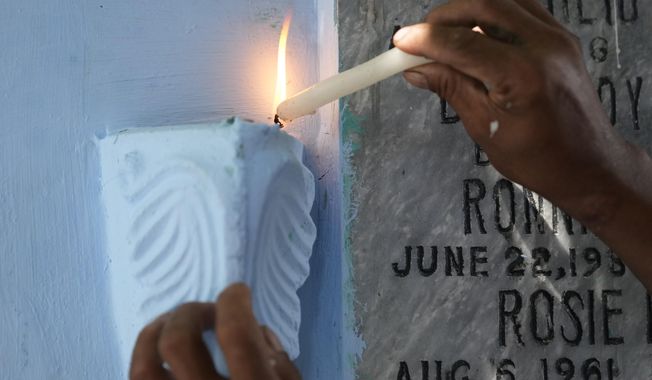
FILE - In this Jan. 27, 2016, file photo, an Aedes aegypti mosquito is photographed through a microscope at the Fiocruz institute in Recife, Pernambuco state, Brazil. The World Health Organization says women who live in areas where Zika is spreading should consider delaying pregnancy, since there's no other sure way to avoid the virus' devastating birth defects. The WHO stops short of advising couples to put pregnancy on hold, as some countries battling the outbreak have. Instead, WHO spokeswoman Nyka Alexander says on June 9, that men and women who live in outbreak areas should be given information about the risks of Zika and told that delaying pregnancy is an option. (AP Photo/Felipe Dana, File)
Featured Photo Galleries


Trump Transition: Here are the people Trump has picked for key positions so far
President-elect Donald Trump has announced a flurry of picks for his incoming administration. Get full coverage of the Trump transition from The Washingon Times.

Trump dances onstage, takes post-election nation by storm
President-elect Trump dances onstage











